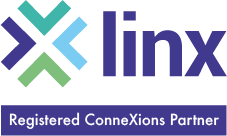
What exactly is remote peering, and how can it benefit UK-based organisations?
Understanding Remote Peering
Remote peering is a networking arrangement that allows ISPs and content providers to connect to an Internet Exchange Point (IXP) from a distant location. This setup eliminates the need for organisations to have a physical presence at the IXP, reducing costs and complexity while still reaping the benefits of direct interconnection.
Exascale’s Remote Peering Services
Exascale, a leading UK-based connectivity provider, offers remote peering services across several key locations in the United Kingdom:
- London
- Manchester
- Wolverhampton
- Telford
Through these strategic points of presence, Exascale enables its customers to connect to major Internet Exchange Points, including:
- LINX LON1 (London Internet Exchange – London 1)
- LINX LON2 (London Internet Exchange – London 2)
- LINX Manchester
- LONAP (London Access Point)
Benefits for UK ISPs and Content Providers
Remote peering through Exascale’s services offers numerous advantages:
- Cost-efficiency: Eliminate the need for expensive equipment and colocation at multiple IXPs.
- Expanded reach: Access major peering points without physical presence, enhancing network coverage.
- Simplified operations: Manage multiple peering connections through a single provider.
- Improved performance: Reduce latency and improve end-user experience by directly exchanging traffic with other networks.
The UK Peering Landscape
The United Kingdom boasts a robust peering ecosystem, with LINX and LONAP playing pivotal roles:
- LINX (London Internet Exchange): One of the world’s largest Internet Exchange Points, LINX operates multiple exchanges across the UK, including the massive LON1 and LON2 in London, and LINX Manchester.
- LONAP (London Access Point): A smaller but significant IXP based in London, offering an alternative peering point for UK-based networks.
By leveraging Exascale’s remote peering services to connect with these IXPs, UK organisations can significantly enhance their network performance and reach.
The Impact of Peering on ISPs
“Peering is a game-changer for ISPs. It allows us to directly exchange traffic with other networks, bypassing transit providers. This not only reduces our operational costs but also significantly improves the quality of service we can offer our customers. With remote peering, we can now access major exchanges without the overhead of maintaining a physical presence at each location.” – John Smith, CTO of a UK-based ISP
Conclusion
Remote peering is revolutionising how UK-based ISPs and content providers approach network connectivity. By partnering with providers like Exascale and connecting to major IXPs such as LINX and LONAP, organisations can optimise their network performance, reduce costs, and ultimately deliver a better internet experience to their end-users.





